Securing a hotel door with an ironing board might seem unconventional, but in certain situations, it can serve as a makeshift security measure to provide an extra layer of protection and peace of mind.
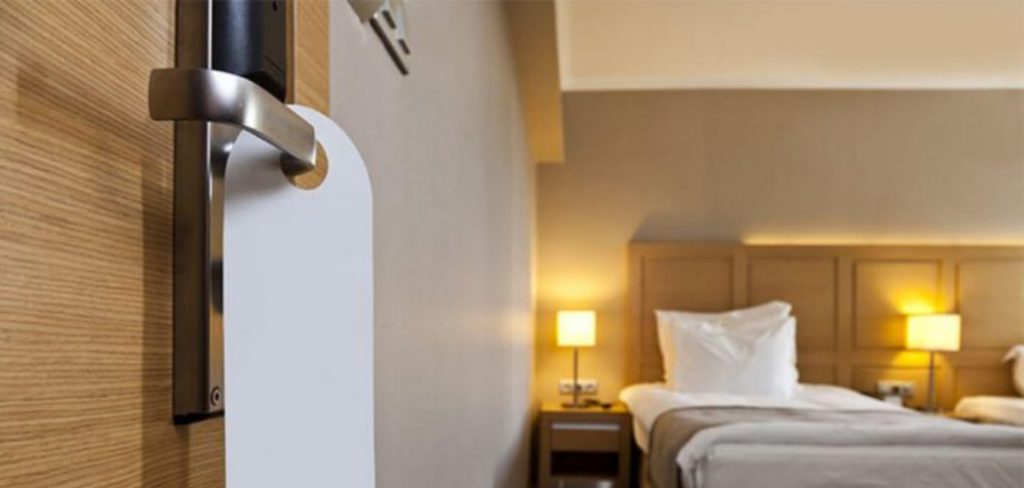
Whether you’re traveling solo and want added security or simply seeking a creative solution to reinforce your hotel room’s door, using an ironing board can offer a temporary barrier against unauthorized entry. In this article, we’ll explore how to secure hotel door with ironing board, including tips for positioning and wedging the board to prevent forced entry.
While it’s important to rely on the hotel’s existing security features, such as locks and deadbolts, utilizing an ironing board as an additional security measure can offer added reassurance, particularly in situations where you feel vulnerable or unsafe.
Importance of Hotel Room Security
The importance of hotel room security cannot be overstated, especially in today’s world where safety concerns are on the rise. When staying away from the familiarity and security of one’s home, ensuring the sanctity and security of your temporary living space becomes paramount.
A secure hotel room not only provides a safe haven for travelers to rest and rejuvenate but also guards against potential threats, ranging from theft to unauthorized entry, which could jeopardize personal safety and peace of mind.
Enhanced security measures in hotel rooms are not just aboutAn error occurred during generation. Please try again or contact support if it continues.
Common Vulnerabilities of Hotel Room Doors
Hotel room doors can have vulnerabilities that might compromise the security of the room. One common issue is the door’s alignment with its frame; over time and with frequent use, doors may not close or lock properly, leaving a gap that could potentially be exploited by intruders.
Another point of concern is the efficacy of the locking mechanisms themselves. Electronic locks, while offering convenience, are susceptible to hacking, especially if the hotel’s security system is outdated. Mechanical locks can suffer from wear and tear, making them easier to pick or bypass. Sliding doors, often found in rooms with balconies, are particularly vulnerable due to their lock systems, which can be less secure than standard door locks.

Additionally, the peephole—a small but crucial component—can sometimes be manipulated from the outside, offering another way for security to be breached. Understanding these vulnerabilities is the first step toward taking measures, such as utilizing an ironing board, to enhance your security while staying in a hotel.
Understanding Hotel Room Door Security
Understanding hotel room door security involves recognizing the various components that contribute to making a door secure and identifying the potential weaknesses that could make it susceptible to breaches. The primary components include the door’s material, the locking mechanism, the door frame, and any additional security features such as deadbolts or security chains.
Strong, solid doors are less prone to being forced open, while high-quality locks, preferably those that are updated and offer advanced security features, can significantly reduce the risk of unauthorized entry. The condition of the door frame is equally important; a weakened or damaged frame can undermine the security of even the most robust door and lock.
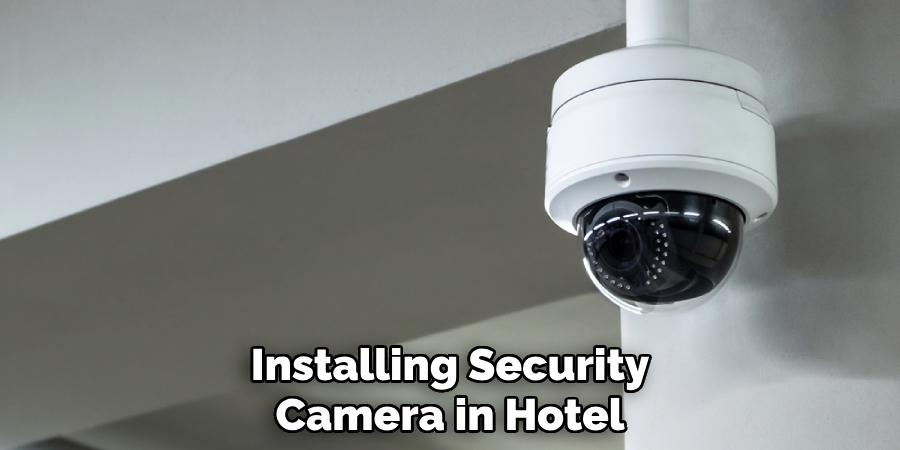
Typical Hotel Room Door Locks and Potential Weaknesses
Hotel rooms traditionally use a range of locking mechanisms to ensure guest security, with electronic key cards being the most ubiquitous in modern establishments. These systems, while providing a high level of convenience for guests and management alike, have their shortcomings.
Electronic locks are vulnerable to sophisticated hacking techniques. Skilled hackers can potentially bypass these systems using cloned cards or electronic devices designed to hack into the lock’s programming.
Mechanical locks, including deadbolts and latch bolts, are also common but come with their set of potential weaknesses. Wear and tear over time can make these locks less effective, and they are susceptible to traditional lock-picking methods. The physical keys for these locks pose a risk as well; if a key is lost or copied, it can easily fall into the wrong hands, providing unauthorized access to the room.
Another point of vulnerability is the emergency access or “master key” system that allows hotel staff to enter any room. While essential for managing guest needs and emergencies, these systems can be abused if master keys are mishandled or if the security protocol around them is lax.
In examining these common locks and their potential weaknesses, it becomes evident that while no system is entirely foolproof, the risks can be mitigated through regular maintenance, updates to electronic locks to safeguard against hacking, and stringent control and tracking of physical keys and master access privileges.
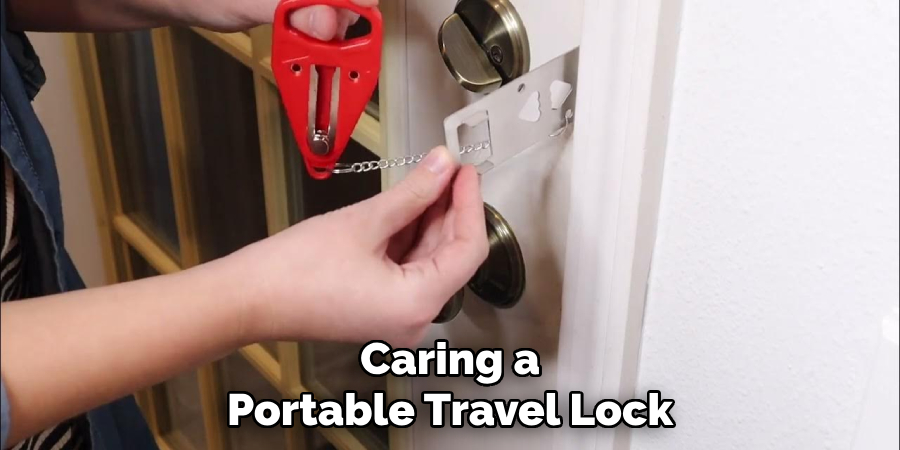
Risks Associated with Unauthorized Entry
Unauthorized entry into a hotel room poses several significant risks to guests, encompassing a broad range of issues from property loss to personal safety threats. Firstly, the most apparent risk is the theft of personal belongings.
Valuables such as electronics, jewelry, and important documents can easily become targets for thieves, leading to financial losses and, in the case of stolen identification, potential identity theft. Beyond property loss, unauthorized access to a room can jeopardize the personal safety of guests, exposing them to potential harm from intruders.
This risk is particularly acute for solo travelers or those in unfamiliar locales. Furthermore, unauthorized entry can lead to privacy invasions, where personal information and belongings are sifted through, leaving guests feeling violated and distressed.
Compromised security also undermines the trust between guests and the hotel management, leading to reputational damage that can affect the hotel’s business.
In the era of instant communication, a single incident can be widely reported and dissuade potential guests from choosing the hotel, making it imperative for hospitality establishments to prioritize and continuously enhance the security of their accommodations.
Importance of Proactive Measures to Reinforce Door Security
The importance of taking proactive measures to reinforce door security in hotels cannot be overstated. These preventative steps not only protect guests and their belongings but also significantly contribute to the overall safety and reputation of the establishment.

Proactive security measures include regular inspections and maintenance of door hardware and locking mechanisms to ensure they are in optimal working condition. Upgrading to advanced security technologies, such as high-security electronic locks with encryption to prevent hacking or the use of door alarms that alert when a door is left ajar, can dramatically enhance room security.
Additionally, training hotel staff on security protocols and the proper handling of keys and access codes helps minimize the risk of unauthorized entry through negligence or oversight. Implementing such measures demonstrates a hotel’s commitment to guest safety, fostering a sense of trust and security that can enhance the overall guest experience and establish a competitive advantage in the hospitality industry.
10 Methods How to Secure Hotel Door with Ironing Board
1.Assess the Door’s Security:
Before implementing any security measures, assess the door’s existing security features. Check the quality of the lock, the strength of the door, and any vulnerabilities that may exist. Understanding the door’s weaknesses will help you determine the best way to reinforce it. Additionally, consider the location of the door and its accessibility to determine the level of security needed.
2.Position the Ironing Board:
Open the ironing board and place it firmly against the door. Position the board horizontally across the width of the door, making sure it covers the entire door frame. The goal is to create a physical barrier that prevents the door from being opened from the outside.
Once the ironing board is in place, secure it by locking the door or using a door stopper to hold it in position. This will ensure that the board stays in place and provides a sturdy surface for ironing.
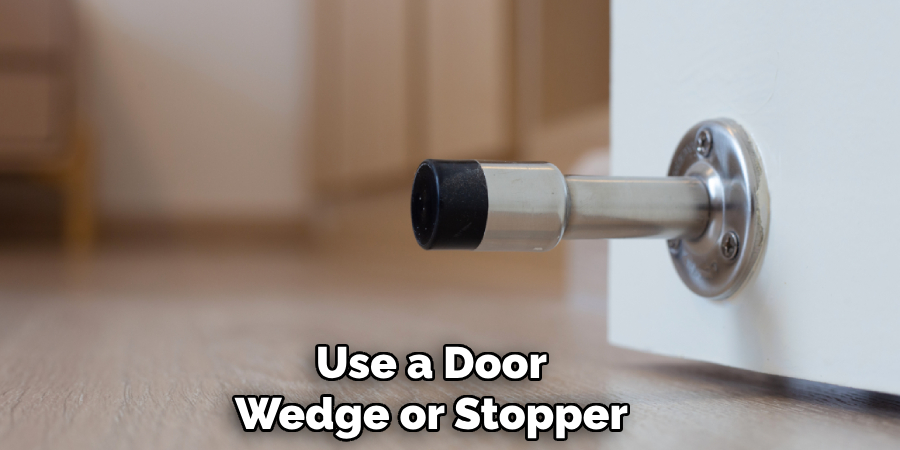
Some other tips for positioning the ironing board include choosing a flat and stable surface, such as tile or hardwood floors, instead of carpet. This will make ironing easier and prevent the board from wobbling or tipping over. Additionally, make sure to position the board near a power outlet for easy access to plug in your iron.
This will save you from having to use extension cords or constantly readjusting the board’s position.
3.Adjust the Height:
Adjust the height of the ironing board so that it rests firmly against the door handle or knob. This prevents the door from being turned or manipulated from the outside. Ensure that the ironing board is stable and securely positioned to effectively block access to the room. It may also be helpful to place heavy items on the ironing board, such as books or weights, to further prevent movement.
Although this may seem like a small detail, properly adjusting the height of the ironing board is crucial in keeping your room secure.
4.Secure the Ironing Board in Place:
To prevent the ironing board from being easily moved or dislodged, secure it in place using additional items such as heavy luggage or furniture. Place these items against the base of the ironing board to add weight and stability.
This makes it more difficult for intruders to force their way into the room. Additionally, you can also use locking mechanisms or straps specifically designed for securing ironing boards.
Another option is to attach the ironing board to a wall or door using mounting brackets. This not only provides stability but also saves space in smaller rooms. Be sure to follow the manufacturer’s instructions for installation and always double check the stability before using the ironing board.

5.Use Door Stoppers:
Place door stoppers or wedges under the door to further prevent it from being pushed open. Wedge-shaped door stoppers are designed to grip the floor and create resistance when pressure is applied to the door.
This provides an additional layer of security in conjunction with the ironing board. Door stoppers are often made of rubber or plastic, and can be easily adjusted to fit under any door size.
Door stoppers not only prevent forced entry, but also help protect against accidents such as slamming doors. They can also reduce noise by preventing doors from banging shut. Additionally, they can be used to hold open doors when carrying heavy objects through them.
6.Notify Hotel Staff:
Inform the hotel staff of your security concerns and the measures you’ve taken to secure the door. They may be able to provide additional assistance or offer alternative solutions. Hotel staff are trained to address guest safety concerns and can help ensure your peace of mind during your stay.
Additionally, they can keep an eye out for any suspicious activity or individuals near your room. While it’s important to be cautious and take necessary precautions, it’s also helpful to have others looking out for your safety.
7.Utilize Portable Door Locks:
Consider using portable door locks or security devices designed specifically for travelers. These devices are easy to install and provide an extra layer of security by preventing the door from being opened even if the lock is compromised.
Portable door locks are compact and lightweight, making them ideal for travel. They can be used on most types of doors, including hotel room doors, Airbnb rentals, and even dormitory or hostel rooms.
Additionally, some portable door locks come with alarms that will sound if someone tries to tamper with the door. This is especially useful for solo travelers or those staying in unfamiliar places. The added noise can alert you to a potential break-in and give you time to call for help.
8.Keep Valuables Secure:
While securing the door is important, don’t forget to secure your valuables as well. Use the hotel safe or lock your belongings in your luggage when you’re not in the room. Avoid leaving valuables such as cash, jewelry, or electronics out in the open where they can be easily accessed.
Additionally, be cautious of who you trust with your belongings. While hotel staff are generally trustworthy, it’s always better to err on the side of caution and keep your valuables locked up.
In addition to securing your physical valuables, it’s also important to secure your digital information. Be mindful of using public Wi-Fi networks in hotels as they can be easily hacked by cybercriminals.
Use a VPN (virtual private network) when accessing sensitive information such as online banking or personal accounts. It’s also a good idea to change your passwords regularly, especially after traveling and using public Wi-Fi networks.
9.Stay Alert and Vigilant:
Remain vigilant and aware of your surroundings while staying in a hotel. Report any suspicious activity or individuals to hotel staff immediately. Trust your instincts and take proactive measures to ensure your safety and security throughout your stay.
Be aware of the emergency exits and fire evacuation procedures in case of an emergency. Familiarize yourself with the layout of the hotel and have a plan in place for how to quickly evacuate if needed.
Always keep your room key with you and do not leave it unattended or visible when out exploring. Additionally, make sure to lock your room door at all times, even when you are inside.
If you are traveling alone, it is advisable to let the hotel staff know your itinerary and inform them of any changes to ensure they can reach you in case of an emergency.
10.Consider Alternative Security Measures:
If the ironing board method doesn’t provide sufficient security or if you’re uncomfortable with it, consider alternative security measures. Look into commercial door security products designed for travelers, such as portable door alarms, door braces, or door jammers.
These products offer additional peace of mind and can enhance the security of your hotel room.
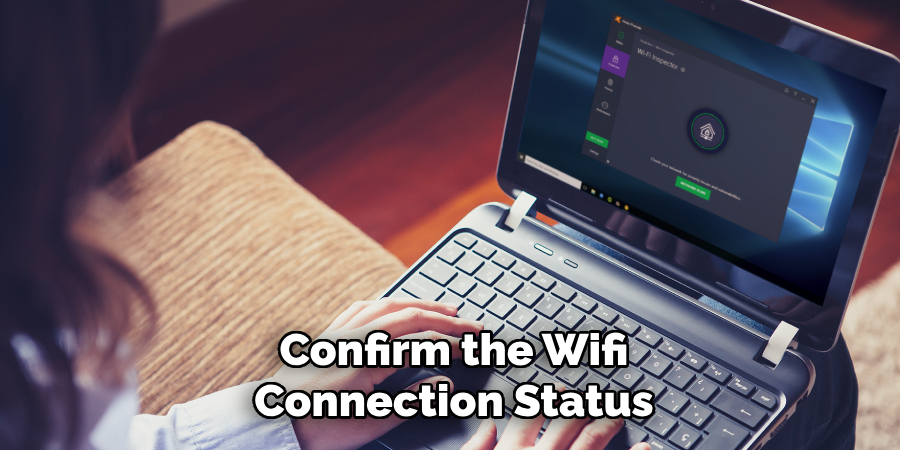
In addition to physical security measures, it’s important to take precautions with your online security as well. Make sure to use a secure internet connection and avoid using public Wi-Fi networks when accessing sensitive information or conducting financial transactions.
Use strong passwords and consider using a virtual private network (VPN) for added protection.
Conclusion
In conclusion, while securing a hotel door with an ironing board may seem unconventional, it can serve as a practical and temporary solution to enhance security and peace of mind during travel. By following the tips outlined in this article, such as positioning the ironing board strategically to reinforce the door and prevent forced entry, travelers can take proactive steps to bolster their safety in unfamiliar environments.
However, it’s important to remember that the ironing board method should supplement, not replace, the existing security features provided by the hotel, such as locks and deadbolts. Thanks for reading, and we hope this has given you some inspiration on how to secure hotel door with ironing board!
About
Safety Fic is a distinguished figure in the world of Diy design, with a decade of expertise creating innovative and sustainable Diy solutions. His professional focus lies in merging traditional craftsmanship with modern manufacturing techniques, fostering designs that are both practical and environmentally conscious. As the author of diy, Safety Fic delves into the art and science of Safety Fic-making, inspiring artisans and industry professionals alike.
Education RMIT University
(Melbourne, Australia) Associate Degree in Design (Safety Fic) Focus on sustainable design, industry-driven projects, and practical craftsmanship. Gained hands-on experience with traditional and digital manufacturing tools, such as CAD and CNC software.
Nottingham Trent University
(United Kingdom) Bachelor’s in diyfastly.com and Product Design (Honors) Specialized in product design with a focus on blending creativity with production techniques. Participated in industry projects, working with companies like John Lewis and Vitsoe to gain real-world insights.
Publications and Impact
In diy, Safety Fic his insights on indoor design processes, materials, and strategies for efficient production. His writing bridges the gap between artisan knowledge and modern industry needs, making it a must-read for both budding designers and seasoned professionals.
